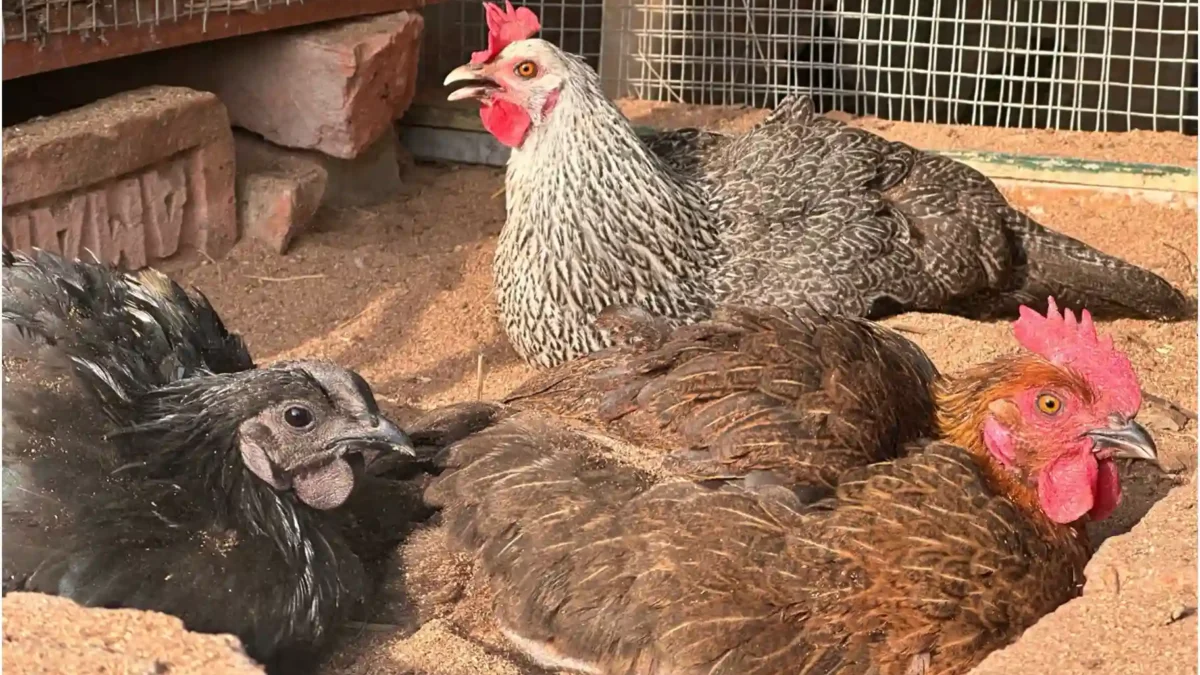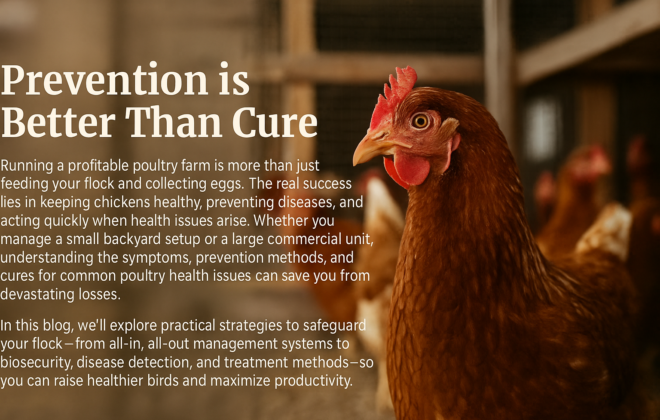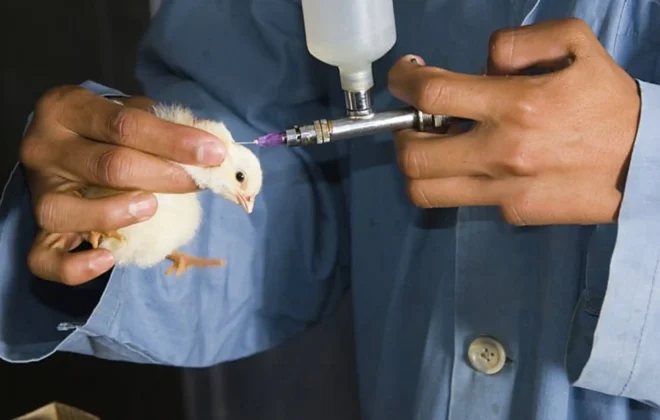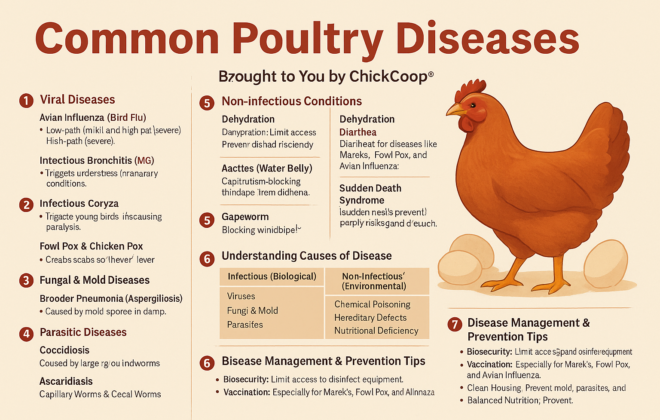
How To Get Rid of Chicken Parasite?
Imagine a creature that thrives by clinging to another living being, draining its resources without offering anything in return. This scenario describes a parasitic relationship. While all infections stem from some form of parasitism, we often picture parasites as worms, mites, or insects that live in or on chickens. Chickens frequently encounter these parasites, and although minor infestations may not seem harmful, significant infestations can severely stress the bird, reduce productivity, and make them more vulnerable to diseases.
Internal Parasites (Worms & Coccidia)
Internal parasites usually inhabit a chicken’s digestive tract. These include worms such as roundworms, tapeworms, and gapeworms, as well as coccidia (protozoa). Understanding their life cycle helps in managing them effectively, as some require intermediate hosts to survive.
Types of Internal Parasites and Hosts:
- Ascarid (Roundworms): Direct cycle, no intermediate host.
- Capillary Worms: Sometimes involve earthworms.
- Cecal Worms: May involve beetles, earwigs, or grasshoppers.
- Flukes: Depend on dragonflies or mayflies.
- Gapeworms: Can use earthworms, slugs, or snails.
- Tapeworms: Wide range of intermediate hosts including ants, beetles, grasshoppers, earthworms, houseflies, slugs, snails, and termites.
Signs of Internal Parasites:
- Worms: Pale head, droopiness, reduced egg laying, gradual weight loss, foamy diarrhea.
- Coccidia: Runny droppings (sometimes with blood), pale skin and shanks, slow growth, reduced laying.
External Parasites (Mites, Lice, and More)
External parasites live on the skin, feathers, or legs of chickens. Among them, red mites are the most notorious.
Red Mites:
These blood-sucking pests feed on chickens at night and hide in cracks and crevices during the day. They multiply quickly in warm weather and especially target broody hens. Adults can survive for months without a host, making infestations difficult to eradicate. Signs include pale combs and wattles, weakness, and sometimes death in severe cases. Effective treatment requires thorough coop cleaning and the use of poultry-safe insecticides.
Other External Parasites:
- Northern Fowl Mites: Found around the vent and tail area; cause dirty-looking feathers, weight loss, and reduced laying.
- Scaly Leg Mites: Invade under leg scales, causing swollen shanks and toes with raised, crusty scales.
- Lice: Seen as pale insects crawling on skin; their eggs form clumps at the base of feathers. They lead to dirty vents, weight loss, and reduced fertility.
Signs of External Parasites
* Red Mites: Red or black specks visible at night, pale combs, reduced productivity.
* Northern Fowl Mites: Specks around vent/eggs, feather damage, weight loss.
* Scaly Leg Mites: Raised scales, swelling on shanks and toes.
* Lice: Scurrying insects, eggs at feather bases, weight loss.
Controlling Parasites
Parasites can spread quickly in flocks, so prevention and timely treatment are essential. Here are key strategies:
1. Regular Cleaning: Keep coops clean, dry, and well-ventilated. Replace bedding often and disinfect roosts, nests, and floors.
2. Dust Baths: Provide dust-bathing areas, as chickens naturally control mites and lice this way.
3. Monitor Signs: Regularly check droppings, feathers, combs, and shanks for early signs of infestation.
4. Targeted Treatment: Use poultry-safe parasiticides only when necessary. Avoid overuse, as resistance can develop.
5. Veterinary Guidance: Always consult a poultry vet before administering treatments.
Why It Matters
Parasites silently reduce your flock’s health, egg production, and growth rate. While small infestations may go unnoticed, unchecked parasites multiply quickly, endangering your entire flock. With the right preventive care, regular inspections, and quick interventions, you can protect your chickens and sustain their productivity.
Take Action Today!
If you notice any of the signs mentioned, don’t delay. Parasites may seem minor, but they can escalate into major health problems. For expert advice on poultry parasite management, reach out today.
At ChickCoop®, we’re more than just a Chicken Company, writing interesting blogs about them– we’re your trusted partner in building a modernized, sustainable and profitable farm. From breed selection to buy-back support, feed guidance, and modern farm management tips, we ensure farmers like you achieve the best results and profits.
Call us today to discuss your farming needs
📧 Email us at: write@chickcoop.in
đź“ž Call us: +91-9939209699
Call us now to protect your flock and ensure healthier, happier chickens!Â


